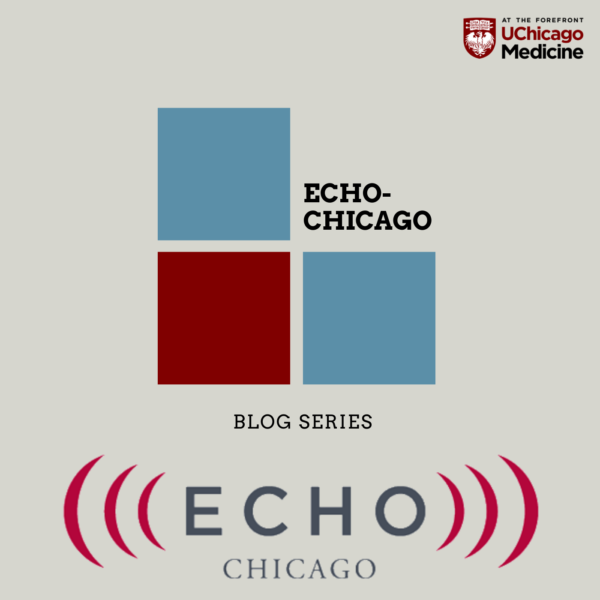AHRQ Nursing Home ECHO Project: Reflections & Wrap-up

It has been almost a year and a half since we hosted our very first COVID-19 ECHO series in March 2020, and since then we have provided countless pandemic-related ECHO series and resources. We began Phase 1 of our National Nursing Home COVID-19 Action Network supported by the federal Agency for Healthcare Research and Quality (AHRQ) in collaboration with the Institute for Healthcare Improvement (IHI) and Project ECHO; to learn more about Phase 1, check out our 5-part podcast series about it in Part 1, Part 2, Part 3, Part 4, and Part 5. We are now wrapping up the Continuation Phase of that project, which began in early April 2021 and are excited to share a bit more about how the series as a whole has come to a close.
Our Phase 1 cohorts that launched in November were comprised mostly of participants from Illinois-based facilities and began our Continuation Phase cohorts as a continuation of our work with those teams. We also launched a second round of Phase 1 cohorts in mid-March 2021 for Texas-based nursing homes, which wrapped up in the end of June. Looking back on the Texas-focused cohorts, ECHO-Chicago Project Coordinator Patrick Gower shared that “working with the facilitation team for the AHRQ Texas cohort was like working with a well-oiled machine, as many of us had worked on the previous Illinois cohort together. It was a pleasure to continue working with a group of such extremely passionate and hard-working individuals who were always looking for new and innovative ways to engage participants. I think that through our case presentations we really successfully cultivated a learning community wherein these folks will communicate with one another in future regarding COVID-specific challenges.” We now see a mix of Illinois and Texas cohorts in the Continuation Phase of this series and are thrilled to have so many perspectives from around the country in each session!
While Phase 1 followed a set curriculum provided by Project ECHO, the Continuation Phase consisted of IHI & Project ECHO -developed modules that could be mixed-and-matched to be more flexible and personalized to the participating teams’ needs. Examples of modules used by our team included: Emotional & Organizational Support for Staff; Staffing and Retention; Leadership Communication; Leadership Practices & Behaviors to Support Teams; and Sustainable Infection Prevention. Other topics the facilitation team chose to cover included: Vaccine Confidence; Trauma-Informed Care/Communication; Practical Approaches to COVID-19 Infection Prevention; and Celebrating Safe Reopening & Visitation. Further, the Continuation Phase allowed for a greater focus on mental health and wellbeing; our facilitators worked hard to create space for a more in-depth discussion about how teams can take care of each other and themselves as the pandemic continues to unfold and evolve, with the changing case rates and emergence of new variants. Discussions during the Continuation Phase were structured to ensure that participating teams were operating in trauma-informed ways for their staff and residents.
Like Phase 1, the Continuation Phase of this project consisted of 1-hour long ECHO sessions which combined didactic-style content, discussion, and Q&A. Each session began with one or more of our facilitators sharing relevant updates in a section we called “This Just In,” which included information on topics such as the Delta variant of COVID-19, new CDC or OSHA guidance, vaccine mandates, and other epidemiological updates like the local prevalence of COVID-19. Further, participant reflections, Q&A, and time for discussion allowed participants to share which important COVID-19 related topics they wished to cover. One session, for example, was focused on emergency preparedness and communication and covered both best practices for this difficult topic and tips for how to apply quality improvement (QI) frameworks to emergency communication protocols. There was also an open forum for discussion where participating facilities shared their processes and reflections from their own experiences with internal and external communication during the pandemic. For each session in both Phase 1 and the Continuation Phase of this project, our facilitation team included a variety of healthcare professionals from the University of Chicago, Project Hope, and IHI, with areas of expertise ranging from geriatrics and nursing home care to trauma-informed care, quality improvement, and organizational leadership.
Kathryn West, Transformation Impact Manager with ECHO-Chicago, shared that “being part of this project was a master class in all the things that make ECHO what it is: responsive to real-world healthcare needs, in a constant state of intentional, iterative quality improvement, and made possible by the truly outstanding facilitators who lead the series and the dedicated participants who both learn and teach each week. Skilled nursing centers haven’t gotten the same attention that other healthcare centers have throughout the pandemic, and yet every single one of them has been on the very front lines of COVID, working hard to care for their residents with expertise and compassion amid an enormous challenge. Getting to be a small part of the word done to support them felt so meaningful, especially when it was as part of a team full of forward-thinking, innovative providers who led the sessions.” All in all, the information shared and the connections made during our National Nursing Home COVID-19 Action Network ECHO sessions have provided a valuable space in which nursing homes and other skilled nursing facilities—all of which have been on the very front lines of this pandemic– can navigate this uniquely stressful and challenging time in our nation’s health history. We are so grateful to all our team members and participants and look forward to continuing our role in spreading information and bringing forth important discussions as the COVID-19 pandemic continues to evolve.
This project was funded under Contract No. 75Q80120C00003 from the Agency for Healthcare Research and Quality (AHRQ), U.S. Department of Health and Human Services (HHS). The authors of this document are responsible for its content. The content does not necessarily represent the official views of or imply endorsement by AHRQ or HHS.
Back to Updates Register
Register
